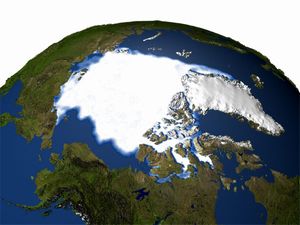 Traveling sandstorms force Middle Eastern countries to cooperate, despite former water disagreements.
Traveling sandstorms force Middle Eastern countries to cooperate, despite former water disagreements.
Approximately two thirds of the Middle East is comprised of desert, including as it does the largest continuous expanse of sand (in Saudi Arabia) known as Rub’ Al Khali or the empty quarter. With so little moisture there are no hovering clouds, and therefore no protection from the pounding sun. The ground gets hotter, creating a wind convection that blows a most furious sandstorm though the region.
These sandstorms have always existed. Camels are one of few creatures that seem impervious to them, evolved as they are to cope. Human beings are not nearly as well equipped. Not only do they risk being blinded by or choking on biting walls of sand, but they are quickly disoriented as visibility is reduced. Realizing that human beings have destroyed everything that might have held the sand in place, five countries have agreed to a plan to reduce the severity of future storms.
Though deserts are naturally occurring phenomena and sandstorms are a permanent fixture, their strength can be either pruned or exacerbated.
Soil erosion, poor water management, overgrazing, and deforestation, as well as drought, another natural but worsening phenomena, all contribute to fiercer sandstorms.
Last summer, one particularly bad week-long sandstorm sent hundreds to the hospital with breathing difficulties, Radio Free Europe/Radio Liberty wrote at the time, according to Treehugger:
Iraq has long suffered blinding sandstorms, but several years of drought have aggravated the situation this year. The inadequate flow of water down its once-mighty rivers, the Tigris and Euphrates, which are choked by dams in upstream countries like Turkey, has made things worse. Water shortages make the land dry out and become more dusty.
And despite “disputes over water from the Tigris and Euphrates [that] have long been a point of contention,” Iran, Iraq, Syria, Qatar, and Turkey have all pledged to improve vegetation and stabilize soil resources, Treehugger reported.
They will also establish a series of meteorological stations.
Hurriyet Daily News reports that “Iranian President Mahmoud Ahmadinejad, meeting with some of the officials, hailed the agreement on Wednesday.”
“Surely, in the near future we will witness other regional nations joining this cooperation to tackle soil erosion, air pollution and desertification,” he was quoted by the presidency website as saying.
As human survival becomes increasingly endangered by environmental instability, particularly in the Middle East where weather patterns are already extreme, we can only hope that our leaders will set aside their political hubris and embrace constructive, borderless cooperation instead.
:: Treehugger
More nature news:
Lebanon’s Mediterranean Apocalypse: Scuba Diving In Waters Devoid Of Life
Israel Marine Ecologist Says Mediterranean Needs More Environmental Protection
25,000 Litter-Busters To Clean Up Dubai October 26
image via Jayel Aheram



